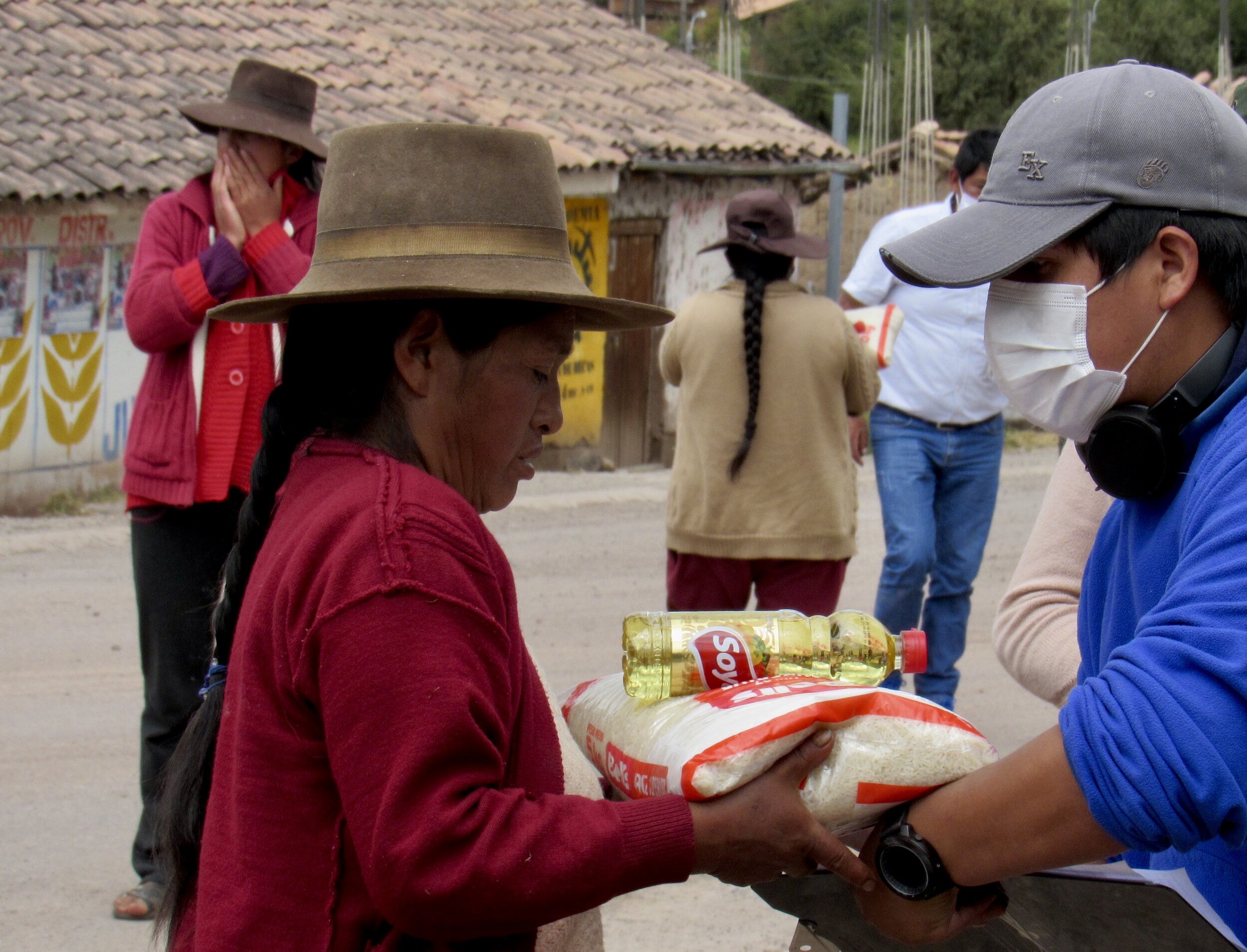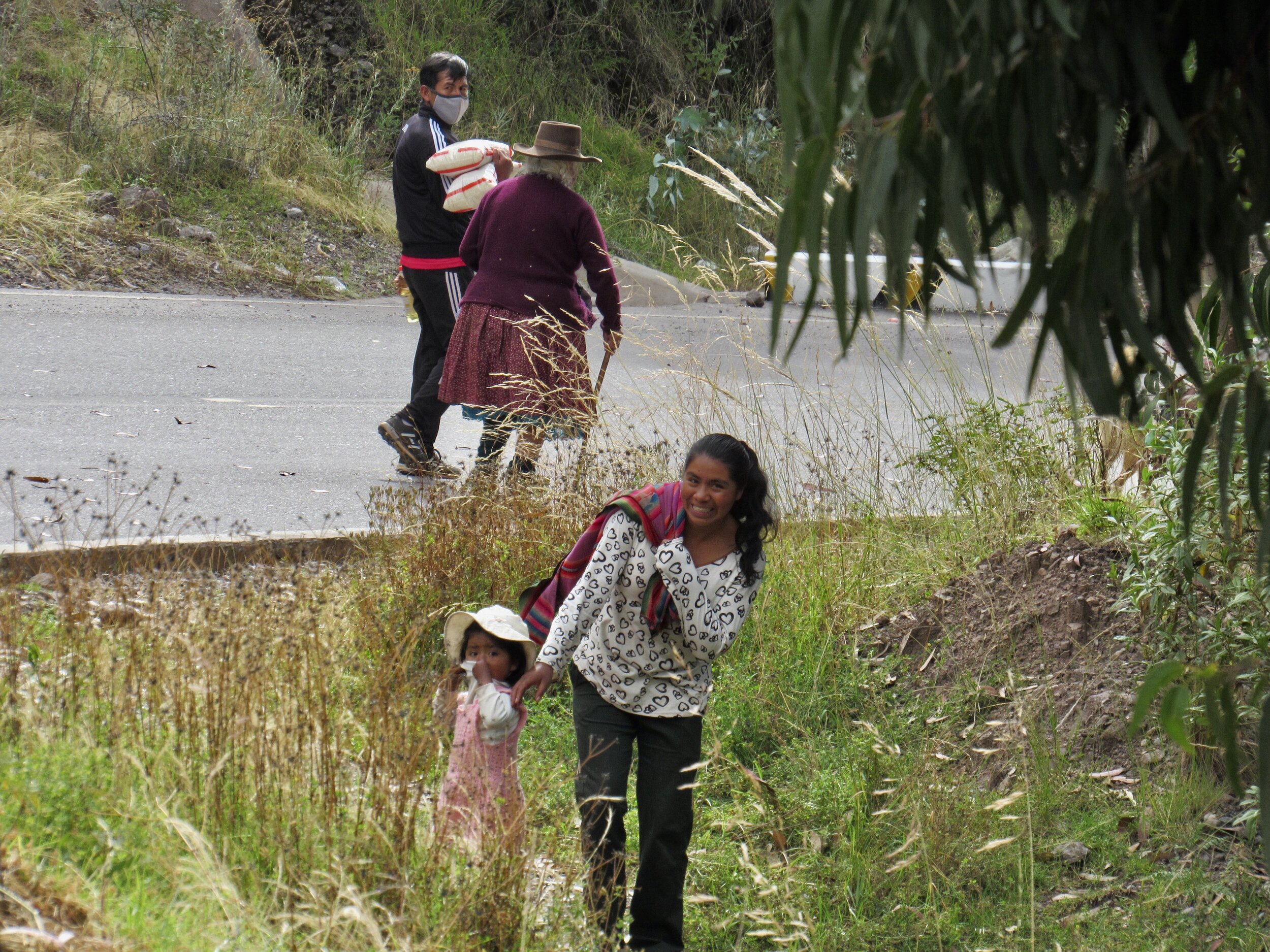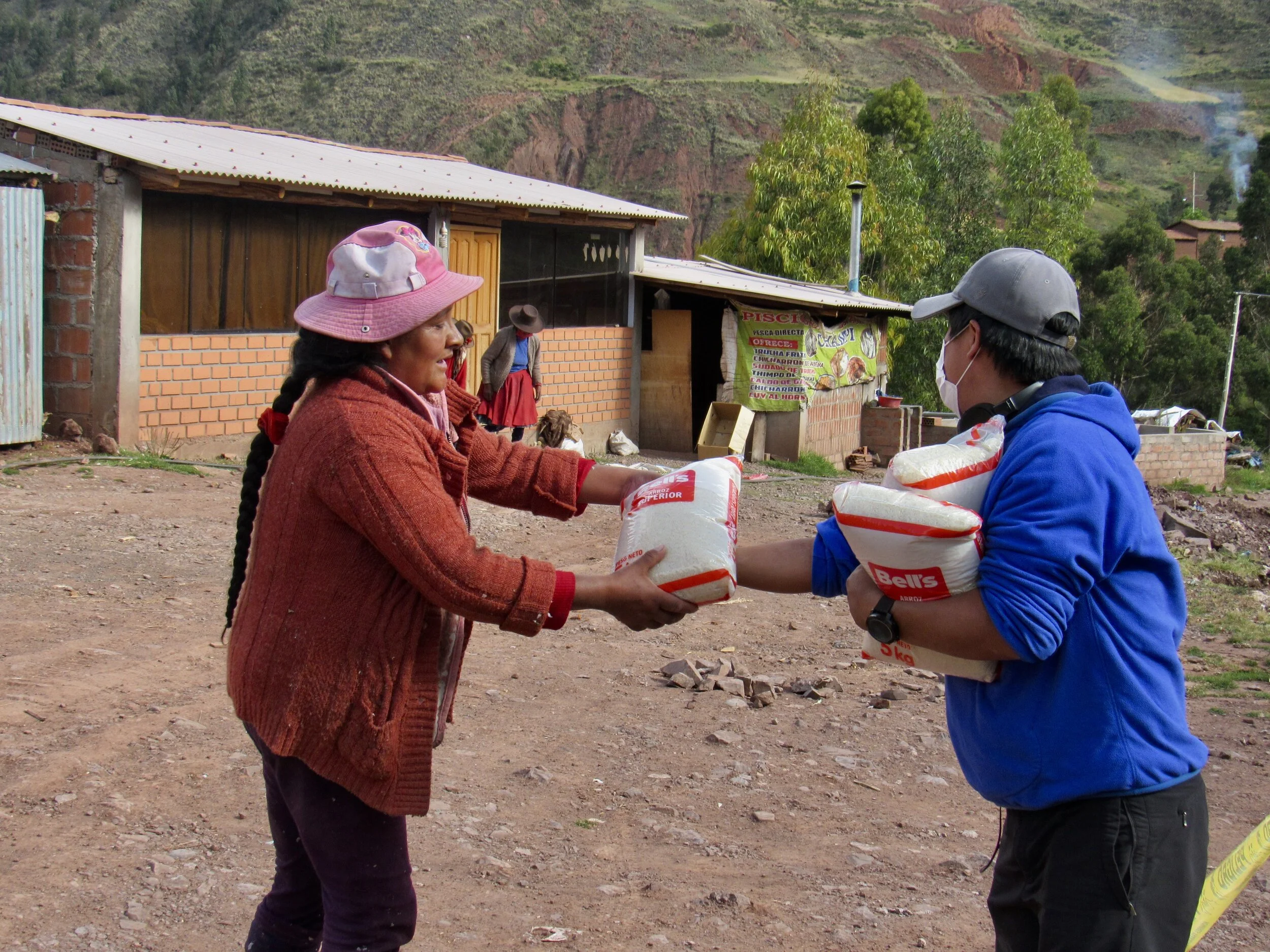Comunidad Campesina de Huancarqui-Ranraccasa
The first ever Covid Relief Project event was an amazing success! We are so thankful to the donors who believed in us, despite not having any proof of what we would do with their money! I am happy to report that we spent 100% of the donations on food. I was worried that we might have to spend some for transportation, but the mayor of Yaurisque arranged transportation for us and all of the food.
Henry and I started the day buying two pallets of rice, with the help of our friend Cliser. We were able to buy 210 bags of 5 kilos of rice and 180 bottles of vegetable oil. This was a much bigger group that we had initially envisioned, but the need is also much greater than I knew.
Henry had called around to several mayors of smaller towns in the Cusco region. He was looking for a community that we could reasonably get to, which was in dire need of help now. There has been some government assistance for vulnerable families, but it is far from sufficient. Some families received money in March, but by May they are back to living off whatever savings they have left.
This pandemic and quarantine hit at the worst possible time for the Cusco region. There are very few tourists during the rainiest months of January and February. People here rely on the tourists to start coming back in March. Most families are supported by a member who works directly in tourism as a guide, cook, horseman on treks or in Cusco at the hotels, restaurants and shops. Many families are supported by one person who sells souvenirs in the Plaza de Armas or who dresses up in traditional clothes to pose with tourists for photos with their alpaca or llama. All those jobs ended when the borders were closed on March 16th.
The mayor of Yaurisque had sent a truck to Cusco to pick up all of the food and also picked up Henry and I in his own truck. We followed the truck of food out of town, up the winding road to Yaurisque and then out the far side of town, on a side road through the countryside. As we went through areas with homes, each too small to be considered a village, he honked and waved at people, saying that we would be back.
At the end of the road, we drove out into a field and stopped to deliver to the families on the first list. There were five different stops, on the way back to Yaurisque. At each one, the mayor called for families on his list. Not everybody was on the list, but he knew every family and had chosen the ones that he knew were in more desperate need than others. Any representative of the family could receive the aid and for families who had not sent a representative to the pick up spot, he sent children running through the houses and fields to find somebody.
I was so thankful that we had bought an extra 30 bags of rice, since there were many families who came to ask for help, but who were not on the list.
I loved seeing how Henry greeted each person as he handed them the rice and oil. He called all of the women “mami” and “mamita preciosa” and the men “papi” speaking to them in Quechua as if they were family. Few people had masks and it was so heartwarming to see their smiles as they thanked him in Quechua.
The first stop was at the end of the road.
The second stop was where we found most of the families on the list.
Our third stop was at an adobe house on the side of the road. Five families who live in the valley just below met us there.
Our fourth stop was a bend in the road, where another ten families were waiting for us.
At our fifth stop we checked off the last families on the list, with some bags of rice leftover to share with anybody else we saw in need along the road.
Along the way, we stopped to give rice to children selling firewood on the side of the road, elderly women shelling peas in the sun and a woman planting potatoes.




























